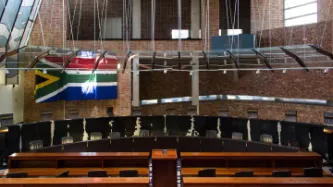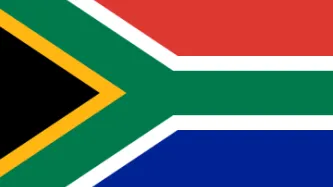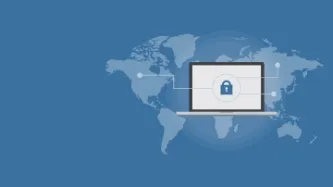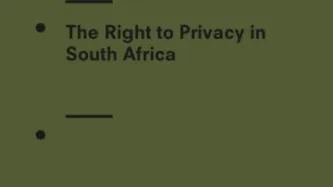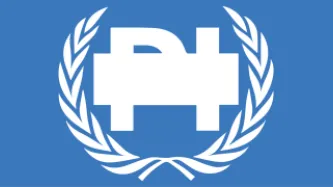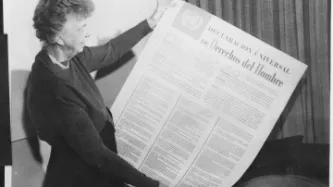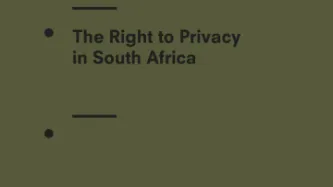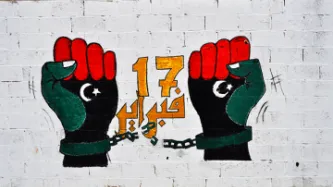Search
Content type: Examples
July 2021 saw violent protests that left 72 people dead and 1,300 in prison after former president Jacob Zuma was jailed for failing to appear before a constitutional court’s inquiry into corruption during his time in office. In response, the South African government deployed the military onto the streets in the provinces of Gauteng and Kwazulu Natal, and began monitoring social media platforms and tracking those who “are sharing false information and calling for civil disobedience”. President…
Content type: Examples
The South African government urged social media platforms to trace and remove posts that incite violence, share false information, and call for civil disobedience after a July 2021 series of spiralling protests sparked by the jailing of former president Jacob Zuka. A number of other African countries such as eSwatini, Senegal, Nigeria, Uganda, Niger, and the DRC have also been increasingly using tracking software, internet shutdowns, and social media monitoring during protests and elections.…
Content type: News & Analysis
Today, the Constitutional Court of South Africa in a historic judgment declared that bulk interception by the South African National Communications Centre is unlawful and invalid.
The judgment is a confirmation of the High Court of South Africa in Pretoria’s powerful rejection of years of secret and unchecked surveillance by South African authorities against millions of people - irrespective of whether they reside in South Africa.
The case was brought by two applicants, the amaBhungane Centre…
Content type: Examples
The government has revealed that illegal immigrants will also benefit from the rollout of the Covid-19 vaccine.
National Treasury director-general Dondo Mogajane said this during a virtual meeting between his department and the SA National Editors Forum on Wednesday afternoon.
“We are in SA and we have many millions of undocumented people and [we can't say they shouldn't receive the vaccine as they are undocumented]. The demand for the vaccine is going to be exceeded, and we are not going to…
Content type: Examples
The Israeli digital ID card creator Pangea EVP has developed an immunity passport intended to give individuals access to public spaces, including airports. The passport will include a photo of the holder, a digital signature, a hologram, and a chip. When they want to fly, holders will insert flight and medical details into a web portal; the system will then advise the health protocol they need to follow. If they test negative for COVID-19, the laboratory will issue a smart card that…
Content type: Examples
Our partners from Right to Know campaign in South Africa produced this infosheet to simplify what the South African government has committed to doing in ensuring that the use of surveillance does not impact negatively on people’s rights to privacy and that necessary data protections are taken into cognizance, whilst the necessary safeguards are put in place to protect citizens during this period of COVID 19.
Link: https://www.r2k.org.za/2020/04/14/covid-19-surveillance-infosheet/
Content type: Examples
Researchers at the University of Cape Town are developing the smartphone app COVI-ID to help the South African government track people who may not know they have contracted COVID-19, as well as people who have come into contact with those who have tested positive. The app will use Bluetooth and geolocation (via GPS, cellphone tower signals, and wifi) to collect the personal locations of users along with their infection status and store the information on the device using self-sovereign identity…
Content type: Examples
The regulations brought in to curb the spread of COVID-19 in South Africa included directions published by the minister of communications and digital technologies that critics claimed violated the country's constitution. On the plus side, the regulations ordered service providers to ensure continued provision of internet and telecommunications services, and enabled temporary licensing of spectrum bands, which could increase internet capacity. However, the regulations also make publishing a…
Content type: Examples
The government has issued a substantial rewrite of a controversial proposal to track people using their phones and other devices in the bid to contain Covid-19. AmaBhungane, an investigative journalism newsroom, said the first “directions” – issued last week by the minister of communications – raised "serious concerns for their vagueness and lack of privacy protections”. The new regulations provide more judicial oversight, restrict the purpose to contact tracing, and aim to ensure that…
Content type: Examples
The South African National Institute for Communicable Diseases and the Council for Scientific and Industrial Research will partner with Telkom and Samsung to create a track and trace system specifically for the South African context, which includes high levels of economic inequality, poverty, and overcrowding. The system will collate data sources such as GIS in order to track those who may be infected and those whom they may expose to the virus. In some communities, the Department of Health…
Content type: Examples
South Africa's Communications Minister, Stella Ndabeni-Abrahams, has stated that telecommunications operators in the country have agreed to provide location data to identify how many people have been infected in a particular area. The Government has broad powers under a national state of disaster.
Writer: Philip de Wet
Publication: Business Insider
Content type: News & Analysis
Today, the High Court of South Africa in Pretoria in a historic decision declared that bulk interception by the South African National Communications Centre is unlawful and invalid.
The judgment is a powerful rejection of years of secret and unchecked surveillance by South African authorities against millions of people - irrespective of whether they reside in South Africa.
The case was brought by two applicants, the amaBhungane Centre for Investigative Journalism and journalist Stephen…
Content type: Examples
The State is not always the only actor involved in the surveillance of benefits claimants. Often those practices are encouraged, facilitated or conducted by private companies. South Africa for instance mandated MasterCard to help distribute benefits through biometric debit cards.
https://www.finextra.com/newsarticle/23941/south-africa-enlists-mastercard-to-distribute-welfare-through-biometric-debit-cards
Publication: FinExtra
Content type: Long Read
The Privacy International Network is celebrating Data Privacy Week, where we’ll be talking about how trends in surveillance and data exploitation are increasingly affecting our right to privacy. Join the conversation on Twitter using #dataprivacyweek.
In the era of smart cities, the gap between the internet and the so-called physical world is closing. Gone are the days, when the internet was limited to your activities behind a desktop screen, when nobody knew you were a dog.
Today, the…
Content type: State of Privacy
Table of contents
Introduction
Right to Privacy
Communication Surveillance
Data Protection
Identification Schemes
Policies and Sectoral Initiatives
Introduction
Acknowledgment
The State of Privacy in South Africa is the result of an ongoing collaboration by Privacy International and the Right2Know coalition.
Key Privacy Facts
1. Constitutional privacy protections: Section 14 of the Constitution of the Republic of South Africa protects the right to privacy.
2. Data protection laws…
Content type: News & Analysis
Our intervention comes on the back of mounting evidence that the South African state’s surveillance powers have been abused, and so-called “checks & balances” in RICA have failed to protect citizens’ constitutional right to privacy.
Among our core arguments are:
That people have a right to be notified when their communications have been intercepted so that they can take action when they believe their privacy has been unlawfully breached. Currently RICA prevents such notification, unlike…
Content type: News & Analysis
As the international cyber security debate searches for new direction, little attention is paid to what is going on in Africa. Stepping over the remains of the UN Group of Governmental Experts, and passing by the boardrooms of Microsoft struggling to deliver their Digital Geneva Convention, African nations are following their own individual paths.
Unfortunately, these paths increasingly prioritise intrusive state surveillance and criminalisation of legitimate expression online as…
Content type: Long Read
To celebrate Data Privacy Week, we spent the week discussing privacy and issues related to control, data protection, surveillance, and identity. Join the conversation on Twitter using #dataprivacyweek.
Do you live in a “smart city”? Chances are, you probably do (or at least your city claims to be). But do you know what exactly makes your city “smart”, beyond the marketing term? And what does this have to do with privacy?
Companies and governments will tell you that the more cameras, sensors…
Content type: Long Read
Privacy International is celebrating Data Privacy Week, where we’ll be talking about privacy and issues related to control, data protection, surveillance and identity. Join the conversation on Twitter using #dataprivacyweek.
Exercising the right to privacy extends to the ability of accessing and controlling our data and information, the way it is being handled, by whom, and for what purpose. This right is particularly important when it comes to control of how States perform these activities.…
Content type: Press release
The European Court of Human Rights will hear a landmark case on surveillance tomorrow (7 November) as part of a challenge to the lawfulness of the UK’s surveillance laws and its intelligence agencies’ mass surveillance practices.
See the attached briefing for case background and historical information.
The case, described by campaigners as a “watershed moment for people’s privacy and freedom of expression across the world”, is being brought by Amnesty International, Liberty, Privacy…
Content type: Long Read
In July 2015, representatives of a private company met in a parking lot in Pretoria, South Africa to sell phone tapping technology to an interested private buyer. What they did not know was that this buyer was a police officer. The police had been tipped off that the company was looking to offload the surveillance technology, an IMSI catcher, to anyone who would buy it. It is illegal to operate such surveillance technology as a private citizen in South Africa, and illegal to buy…
Content type: Advocacy
This stakeholder report is a submission by Privacy International (PI) and the Right2Know Campaign (R2K). This report has been prepared with the assistance and research done by the Media Policy and Democracy Project. PI is a human rights organisation that works to advance and promote the right to privacy and fight surveillance around the world. R2K is a broad- based, grassroots campaign formed to champion and defend information rights and promote the free flow of information in South Africa…
Content type: News & Analysis
This guest piece was written by Jane Duncan of the Right2Know Campaign. It does not necessarily reflect the views or position of Privacy International.
On 23rd March the United Nations Human Rights Committee released its assessment on South Africa’s compliance with the International Covenant on Civil and Political Rights (ICCPR). The report includes a blistering attack on the Government for failing to respect the privacy of the communications of users and makes…
Content type: News & Analysis
This week the UN Human Rights Committee has issued recommendations to the Governments of Namibia, New Zealand, Rwanda, South Africa, and Sweden to reform and strengthen surveillance and privacy protections.
The Committee recommendations touch upon some of the fundamental issues of surveillance powers and the right to privacy, including mass surveillance, retention of communication data, judicial authorisation, transparency, oversight, and regulating intelligence sharing.
These recommendations…
Content type: News & Analysis
This week will see the right to privacy take center stage at the UN in Geneva.
The UN Special rapporteur on the right to privacy will present his first report to the UN Human Rights Council on Wednesday 9 March. Meanwhile the Human Rights Committee will review the records of surveillance and the right to privacy of South Africa and Sweden among others.
The new Special Rapporteur on the right to privacy
A year ago the Human Rights Council established the mandate of the Special…
Content type: Advocacy
Privacy International, Right2Know, and the Association for Progressive Communications (hereinafter “the organisations”) note the written replies by the government of South Africa to the list of issues on South Africa’s laws, policies and practices related to interception of personal communications and protection of personal data.
The organisations have on-going concerns on the practices of surveillance by South African intelligence and law enforcement agencies. In this submission, the…
Content type: News & Analysis
Photo: Flickr/Elvert Barnes. Some rights reserved.
In the wider civil society space, the opportunities for travel come thick and fast. From the multi-stakeholder perspective, the Internet Governance Forum will be held during November in João Pessoa, Brazil. There is the Stockholm Internet Forum in, naturally, Stockholm. In freedom of expression there is the International Freedom of Expression Exchange Strategy Conference in Trinidad & Tobago, while End…
Content type: Advocacy
This stakeholder report is a submission by Privacy International (PI) and the Right2Know Campaing. PI is a human rights organisation that works to advance and promote the right to privacy and fight surveillance around the world. PI wishes to bring concerns about the protection and promotion of the right to privacy in South Africa before the Human Rights Committee for consideration in South Africa's upcoming review.
Content type: News & Analysis
Surveillance companies selling mass and intrusive spy technologies to human rights-abusing governments often are benefitting from the financial and institutional support from their home government, revealing a more closely-linked relationship between the sector and the State than previously believed.
Recent revelations concerning the funding of Hacking Team's surveillance technology with public money highlights the role of states in funding the development of surveillance…
Content type: News & Analysis
Over the past half year, Privacy International has been investigating the sale of surveillance technology made by South African company VASTech to Libya and what role the government had in promoting and developing the system. Unfortunately, the government has been slow to respond to our questions and has offered only vague answers. This has done little to ease our concerns about the part they played in the development and export of mass surveillance technology to a military regime with a…
